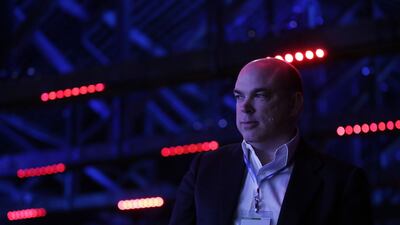Mike Lynch, the co-founder of Autonomy who was once hailed as Britain's answer to Bill Gates, has lost an appeal against his extradition to the US to face criminal charges in connection with Hewlett-Packard Enterprise's $11 billion acquisition of his software company.
The High Court in London rejected Lynch's appeal on Friday, marking the latest chapter in a legal saga that began shortly after the 2011 sale of Autonomy to HP.
Lynch faces 17 US charges over the 2011 takeover, which was one of Britain's biggest technology deals. He denies any wrongdoing.
In January 2022, Britain's Home Secretary approved Lynch's extradition to the US.
Lynch's lawyers had argued that he should be prosecuted in Britain, where the Serious Fraud Office has reserved the right to prosecute him if he is not extradited.
However, lawyers representing the US government countered that there was no reason to block the extradition, stating that the SFO had ceded jurisdiction to US prosecutors.
High Court judges Clive Lewis and Julian Knowles ruled against Lynch, writing in their decision: “We are unpersuaded there is anything in this ground of appeal. None of the grounds of appeal are arguable.”
The legal saga began after the 2011 sale of Lynch's Autonomy to HP, a Silicon Valley hardware company.

A year after the acquisition, Hewlett Packard wrote down the value of the deal by $8.8 billion.
Following a separate court judgment, Lynch was found to be dishonest in the sale of his company.
Lynch, who denies all charges, had maintained that the case belonged in the UK and could have been fully investigated by British authorities.
His representatives did not immediately respond to calls and emails requesting a comment.
Legal expert Samantha Walker said: “The High Court's decision is a significant blow to Lynch and his legal team, as it signals the UK's willingness to co-operate with US authorities in high-profile cases like this.
“It will be interesting to see how Lynch's case will progress from here, as it highlights the complexities of cross-border investigations and the challenges of determining the appropriate jurisdiction for prosecution.”
As Lynch awaits further developments in his case, experts continue to analyse the implications of this decision for other high-profile individuals facing similar legal battles.


